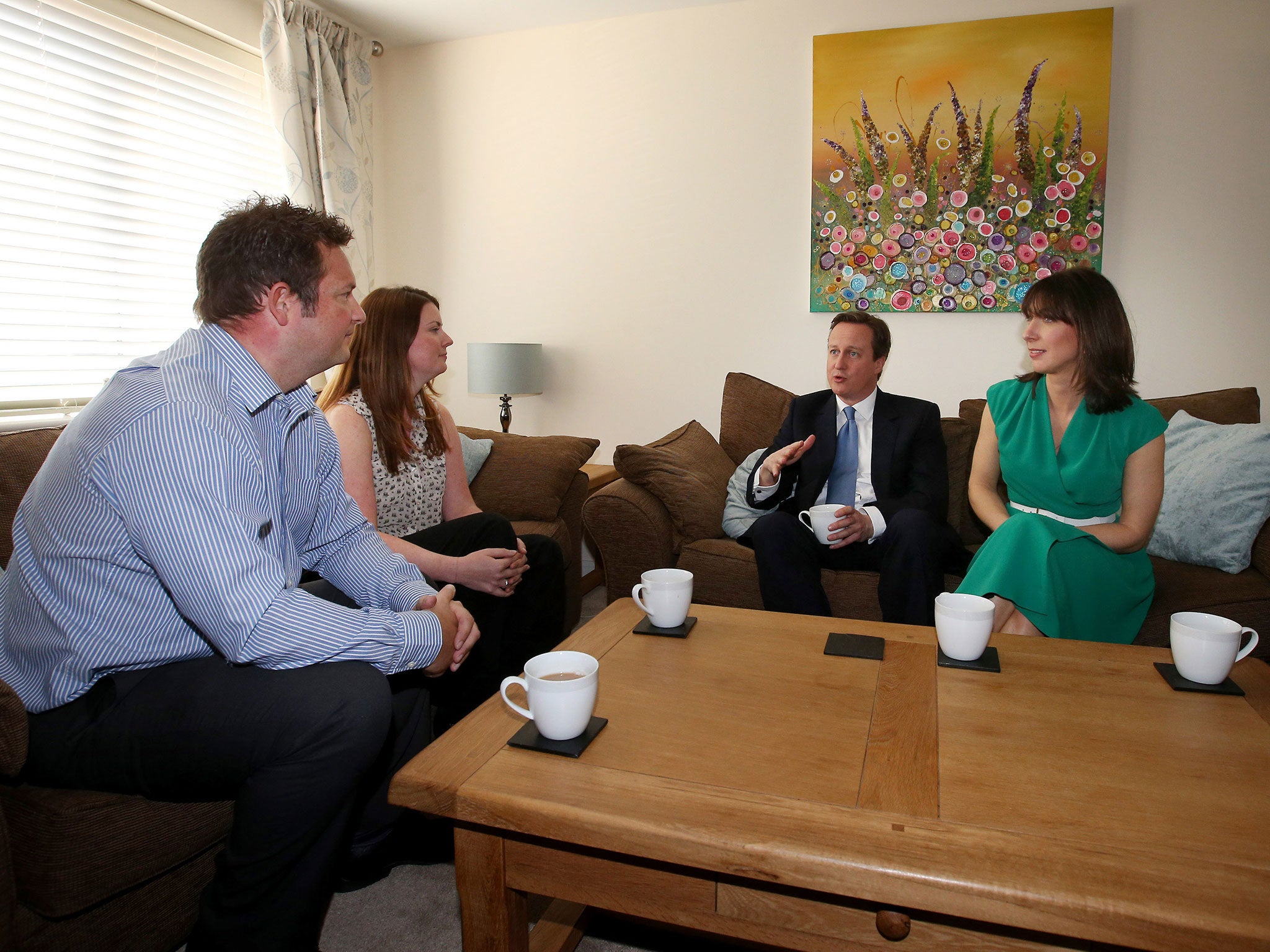Extending Right to Buy discounts makes good headlines but it is awful, irresponsible policy
Any government serious about tackling the housing crisis would restrict Right to Buy, not extend it


Your support helps us to tell the story
From reproductive rights to climate change to Big Tech, The Independent is on the ground when the story is developing. Whether it's investigating the financials of Elon Musk's pro-Trump PAC or producing our latest documentary, 'The A Word', which shines a light on the American women fighting for reproductive rights, we know how important it is to parse out the facts from the messaging.
At such a critical moment in US history, we need reporters on the ground. Your donation allows us to keep sending journalists to speak to both sides of the story.
The Independent is trusted by Americans across the entire political spectrum. And unlike many other quality news outlets, we choose not to lock Americans out of our reporting and analysis with paywalls. We believe quality journalism should be available to everyone, paid for by those who can afford it.
Your support makes all the difference.If anyone needed proof that the Conservative election campaign is little more than a series of gimmicks, media stunts and shameless posturing then their Right to Buy announcement yesterday provided the strongest evidence yet.
The promise to extend Right to Buy discounts to 1.3 million housing association properties might make good headlines but it is awful, irresponsible policy. In fact, it could be described as one of the most counterproductive, senseless and ill-conceived pledges ever made by a British political party.
Britain is in the grip of the deepest housing crisis in decades, with the two million people currently on council house waiting lists having to wait up to ten years for a social house in some areas. A lack of housing of all tenures is causing private rents to rocket, and our broken market means home ownership is a distant dream for an entire generation of young people. To suggest that the solution to these problems is to sell off even more of our already diminished social housing stock is lunacy of the highest order.
Anyone familiar with the UK housing situation knows that the current crisis is the result of a lack of supply, not a lack of demand. Britain urgently needs to be building many thousands more homes every year, but the Coalition has presided over the lowest housebuilding rates since the 1930s. The most basic economics textbook will tell you that increasing demand while failing to increase supply results in higher prices. Yet that is exactly what the Conservatives are proposing.
Of course, the Tories know exactly what they are doing. They know this is a disastrous policy but once again have sacrificed the national interest for the sake of crude political calculation. This announcement is a desperate attempt to convince lower earners that the Tories are on their side. George Osborne and David Cameron both studied PPE, but this is all politics and no economics.
Even, then, though, the policy fails spectacularly. Right to Buy is in practice a huge state subsidy for those already lucky enough to have bagged a decent, affordable home. It does nothing for the millions stranded without that luxury - nothing for the renters, the young couples, the families stuck in overpriced, overcrowded homes and so desperate for the kind of house that the Tories now want to sell off in droves.
What’s more, their pledge to replace every home sold under Right to Buy is as hollow as they come. It is the exact same promise they made a great deal of in 2011, and then completely failed to keep. Figures released earlier this year revealed that only one new affordable home has been built for every five sold under Right to Buy since 2012. There is no reason to believe that this time will be any different.
Any government serious about tackling the housing crisis would restrict Right to Buy, not extend it. One of the main causes of the crisis in the first instance is the catastrophic decline in the number of social homes since Right to Buy was introduced in 1980. In London, there are 285,000 fewer council houses than there were in 1991.
Properties sold under the scheme too often end up in the private market, as social tenants buy their social house and then sell it for a huge profit on the private market, or rent it out privately. Well over a third of the houses in London sold under Right to Buy are now owned by private landlords. There is simply no other area of public policy in which the government would give up to £100,000 of taxpayers’ money to individuals for their own financial gain. Right to Buy is a catalyst for turning public housing stock into private buy-to-let investments.
Equally disturbing, yet not so widely publicised, is the Tory proposal to force councils to sell off council homes in wealthier areas. Not only does this result in fewer and fewer social homes, it also means that social tenants will be turfed out of more upmarket areas, leaving leafy suburbs as the preserve of the wealthy. It is, at its best, a disaster for building the mixed communities that are so important in cities like London. At worst, it is a form of exclusionary zoning that serves to segregate rich from poor.
Instead of speeding up the privatisation of public housing, what the next government must do as a matter of urgency is increase the social housing stock across the UK, particularly in London and the South East where the crisis grips hardest. Instead, just 40 council homes were built in London last year. Two thirds of London councils haven’t been able to build a single council house in the last decade.
Political leaders who genuinely care about helping the generation locked out of home ownership would focus their efforts on increasing the supply of housing of all tenures. They would allow development of poor quality greenbelt sites, so that we no longer have to sell off children’s playing fields in place of the golf courses and car parks that are inexplicably protected. They would free local councils from the shackles preventing them building a new generation of council homes. In the short term, they would introduce a system of rent controls to help tenants who have been hit hardest by the housing crisis. You will find none of these policies in the Conservative manifesto. Instead, the British people are being offered another five years of housing policy that will mean higher rents, bigger deposits and a whole generation still locked out of Britain’s broken housing market.
Join our commenting forum
Join thought-provoking conversations, follow other Independent readers and see their replies
Comments